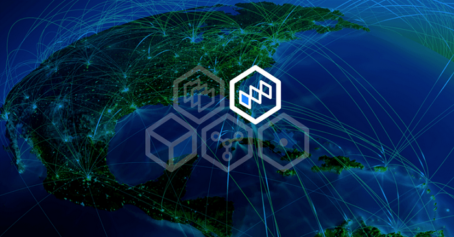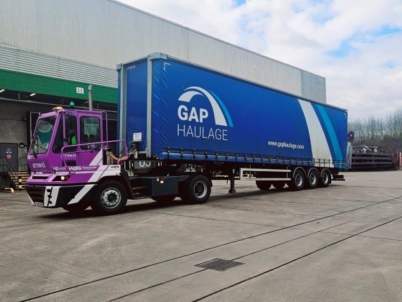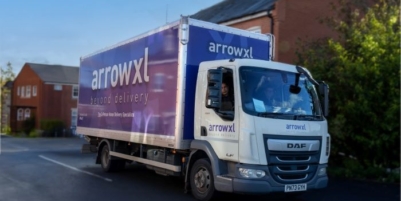-
Nutrivend selects Forterro’s Orderwise to support online expansion and streamline operations - April 11, 2025
-
ARROWXL LAUNCHES AMBITIOUS ZERO WASTE ROADMAP - April 8, 2025
-
THE BCMPA’S NEW CAMPAIGN DRIVES OUTSOURCING SUCCESS IN Q1 - April 7, 2025
-
BLACKOUT TECHNOLOGIES TARGETS TELEMATICS-INTEGRATED MOBILE DEVICE BLOCKING TO COMBAT SMARTPHONE DISTRACTION - April 1, 2025
-
Sparck Technologies awarded Royal designation - March 27, 2025
-
OpenADR Alliance announces first OpenADR 3.0 certified products with EVoke Systems, E.ON Energy and Universal Devices - March 25, 2025
-
Growing fulfilment and contract packer appoints new Managing Director - March 25, 2025
-
When is it time to invest in a WMS? Understanding the key trigger points - March 25, 2025
-
eCapital helps Vantage Recruitment on its journey to financial success - March 24, 2025
-
Hugo Beck Celebrates 70 Years of Packaging Innovation with Open House Events - March 20, 2025
By Sanjay Chopra, CEO, Cognistx
One of the main products we’ve been focusing on in the last three (3) years is our Data Quality Engine. DQE helps companies clean their data with a combination of business rules and AI/ML models. DQE helps companies climb the data quality ladder to achieve AI-readiness.

AI enabled data will result in significant operational improvements. Here are some of the operational efficiencies we have delivered for commodities distribution and supply chain companies.
- Anomalies identification. With its combination of business rules and AI/ML models, DQE typically finds hundreds of thousands of anomalies. These would have gone undetected. Say, it would have taken 2 minutes for humans to find these anomalies @ $30/hour each anomaly found is a dollar saved!
- Reduction in inefficient deliveries. Since companies utilize bad & incomplete data to set up customer deliveries it results in inefficient delivery. In the propane distribution world we have seen each inefficient delivery cost the company between $30 and $40. If you have 100,000 inefficient deliveries per year, it can cost you between $3 to $4 million per year. Generally companies have significantly more than 100,000 inefficient deliveries. Incorrect delivery dates, units/gallons, equipment capacity, tank/equipment setup and configurations result in inefficient deliveries.
- Reduction in unnecessary customer service stops. Sometimes companies rely on sensor and IOT data to automatically schedule service calls. This can result in quite a few extra customer visits. Based on the service calls, these visits can not only have unnecessary service costs but can also have a negative environmental impact. Our AI models help ignore unwanted customer service stops and improve miles/customer visits per stop.
- Prevent running out of commodities. Worse than inefficient or unnecessary deliveries are when a customer runs out of any product or commodity. The delivery cost is typically 3 to 4 times a normal delivery. Customer service and executives are involved and the company goes through a fire drill! Furthermore, there is a good chance that the company will lose that customer.
- Improved customer service. Having bad data results in poor customer service. It doesn’t matter how good the customer service team is, bad data will result in bad customer experiences. It will result in higher customer attrition. If you look at the customer acquisition cost and lifetime value of a customer, this results in millions of dollars in lost revenue.
- Better strategic options. Better data quality and having the tools to keep the data clean in the core system gives the companies several strategic advantages. The company will be much better in acquiring other companies. It will have a significantly higher customer satisfaction score. The company will be more nimble and have the ability to adapt with changing business conditions. These could be pandemics, wars, or effects of climate change. Better data will let you adapt quickly to any disruptions.
The diagram below gives an overview of a typical deployment of DQE. We have a state of the art dashboard. DQE utilizes MongoDB, AWS and integrates with SAP and/or other customer ERP systems.


Check out our recent podcast with Emerj: Improving Delivery Efficiency for Propane and Commodities Distributors – with Sanjay Chopra of Cognistx.

If your organization would like to try DQE, we are game for a partnership!
Please contact Cognistx CEO Sanjay Chopra to learn more about how AI can enhance your business.
































